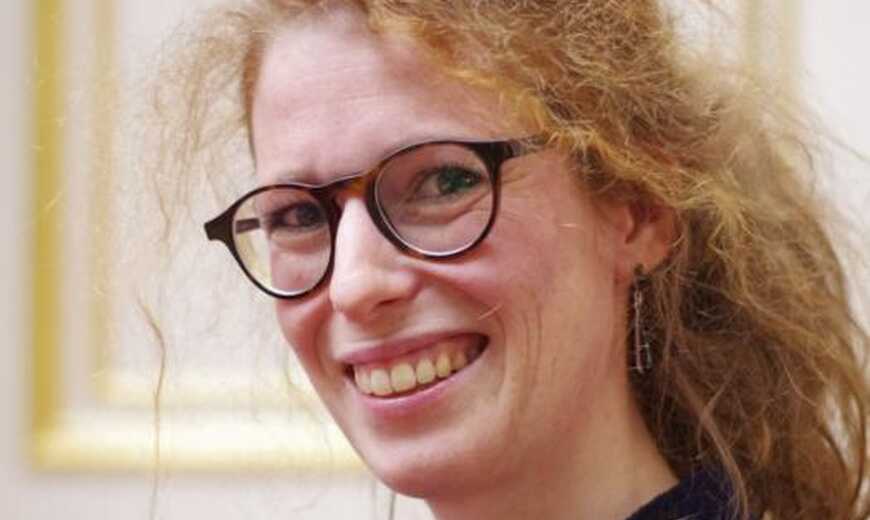Interviewer: David Stawarczyk, you have recently obtained an FNRS “chercheur qualifié” permanent position to join ULiège, where you did your PhD. Until recently, you were working as a postdoctoral fellow in the US and in Germany. What are you working on now?
[DS] Thanks for the invitation. During my PhD and first postdoc, I was mostly working on mind wandering: what’s going on when you’re trying to do a task, but then you start thinking about something else. A common example of this phenomenon is that of reading a document, and when we get to the end of the page, we notice that we did not understand anything from what we just read, because we were thinking of something else. When I moved to the US, I switched topic to work on the dynamic aspect of event perception. In everyday life, the flow of information from sensory input is continuous, but people automatically segment the flow of information into discrete events, each with their own meaning. For example, if you think about what you did today, you’ll probably segment your day into different events with a beginning and an end. Cognition is extremely dynamic. Now, as a chercheur qualifié at ULiège (see website), I want to apply this dynamic aspect of cognition to the study of mind wandering. Most of the time, we don’t think about a single topic, but we “jump” mentally from one topic to the next. I want to better understand this dynamic aspect of thinking, and how this is related to memory. Indeed, when I was working on mind wandering, I discovered that a large proportion of mind wandering episodes are about the future, mostly about plans. This is called prospective memory. This is another question that I would like to work on: what are the features of thinking that can predict that we are going to remember some topics we think about during mind wandering, and why others get forgotten.
Interviewer: Studying mind wandering poses many challenges, the main one being the subjective nature of the experience. How do you address this challenge in your work ?
[DS] This is the major challenge when studying mind wandering: we have to rely on subjective, self-reports of what people are thinking. Typically, we ask people to perform relatively “boring” or repetitive tasks, and we interrupt them at different points to ask about their attentional focus. Mind wandering is defined as thinking that is unrelated to the task or current sensory perception. Instead on being focused on the task, I’m thinking about something that happened earlier today, or that will happen later tonight, … The way that researchers are investigating mind wandering is called triangulation: trying to get different sources of information to better understand what’s going on in the mind. Triangulation means that we are using the subjective self-reports, but also an objective measure of the performance, and some physiological measures (e.g., fMRI, eye-tracking). By combining all these methods in our studies, we get a more comprehensive ( andhopefully more objective) understanding, of mind wandering.
A second challenge is that mind wandering is mostly spontaneous: we cannot simply ask people to engage in mind wandering! In most studies, we have to place participants in situations where we expect mind wandering to happen. Because of all these challenges, mind wandering has long remained overlooked. In the last 15 years, it’s really grown, and it’s exciting to be part of the development of something new!
Interviewer: Where is your field heading to in the future? Are there initiatives that you are particularly excited about, that might shape the development of cognitive neuroscience?
[DS] There are a couple things that have been changing recently and that I’m really excited about. First, I notice that more and more researchers try to use naturalistic stimuli in the labs. Many times, when we study memory, we use lists of words or pictures. But I recently noticed that researchers are starting to use e.g. movies, that are richer, and maybe more similar to everyday life processes. I am very excited about this, especially with respect to fMRI: researchers are trying to decode how the brain shifts from one event to the next while people are watching movies in the scanner.
Another thing that I’m very excited about is ultra-high resolution fMRI (7T scanners). With these scanners, we can have a better spatial resolution to examine things that we couldn’t examine before. As a postdoc in Germany, I started working on the activity of hippocampus, which might be important in the generation of mind wandering episodes (that rely a lot on memory). I’m really curious to see how this is going to develop in the next few years.
Last, I’m very interested in the development of machine learning and deep neural networks. I haven’t worked on that yet, but it’s in the plans for later! Using deep neural networks, researchers can examine streams of thoughts to look for semantic similarities between successive ideas for example. This is a potentially powerful tool to help us better understanding what’s going on when we are thinking, in a dynamic perspective.
Interviewer: You have done postdocs in different countries – in fact, on different continents. Do you have an advice to share with the postdocs who are reading our newsletter?
[DS] I don’t want to be depressing, but my first advice would be to avoid being too disappointed or even giving up when things don’t work out the first time. You are going to submit grant applications, and they are probably not going to be always successful the first time. For my current position, I had three opportunities to apply (that’s the rule at FNRS), but I only managed to get it on my last try. There will be frustration, and you need to learn who to manage it. Having a plan B can be useful, when papers get rejected it’s relatively easy to submit them to another journal. When grant or position applications are not successful, it can get more complicated. Anticipating that this may happen by having different options open can help.
Another advice, if you can, is to consider moving country. If you are ready to move, there are postdoc opportunities abroad.
Last, as a postdoc, you often have very short positions, and it’s hard to finish a study within a short timeframe. I ended up carrying studies from one or two postdocs before my current position. This can be very difficult to manage. One way to alleviate this issue , in my opinion, would be to learn new things in your postdocs years, but maybe avoid completely changing field. This way, the learning curve might not be too steep, and it doesn’t take too long to set-up your new research projects.
Meet the lab series: Interview with Dr. D. Stawarczyk
Written by Tim VantilborghSimilar articles
All articles
Meet the lab series: Interview with Prof I. Simoes Loureiro
Explore the multidisciplinary future of Alzheimer’s research with Prof. Loureiro in this interview: Combining cognitive psychology, neuropsychology, and engineering, her approach promises innovative memory care strategies and collaborative advancements in the field.
Read more
Meet the lab series: Interview with Dr. Steve Majerus
We spoke with Steve Majerus, former president of the BAPS executive committee, about his years in service, his work in working memory research, and his thoughts on where the field is heading. Steve shared insights into the challenges of psychology in Belgium, the importance of targeted memory care, and the power of mathematical modeling. His advice to future scientists? Enjoy the beauty of the journey!
Read more
Meet the lab: Interview with Jozefien De Leersnyder (KULeuven)
This interview was published in our July 2022 newsletter.
Read more